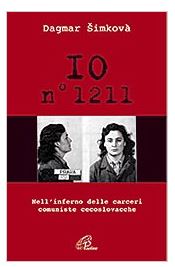 18th CEI International Summer School
18th CEI International Summer School
Beyond Enlargement. The Wider Europe and the New Neighbourhood
Cervia, Hotel Genzianella
Via Roma 85 – Cervia – Italy
Deadline for application: June 3rd, 2012
The Background
The 18th edition of the CEI International Summer School “Beyond Enlargement. The Wider Europe and the New Neighbourhood” will take place in Cervia, from Sunday 2nd to Saturday 15th September 2012.
Since 1995 the “Europe and the Balkans International Network – Centre for Eastern European and Balkan Studies”, established by the University of Bologna, has been organising a yearly Summer School for post-graduate students from Eastern Europe and from the European Union. Up to the ninth edition, held in 2003, the School was entitled “Post-Communist Transition and European Integration Processes”. Starting from 2004 the School has the title: “Beyond Enlargement. The Wider Europe and the New Neighbourhood”. This title change is explained by the enlargement of the EU towards ten East European Countries in 2004, seven of them belonging to the CEI area that represents the conclusion of the so called “post-communist transition”, at least for this part of Eastern Europe. The recent policy of the EU on “Greater Europe and the new neighbourhood” offers new rooms for an interaction between the CEI and the EU strategic goals, and this will be taken into serious consideration in the School programmes as well as in the selection of the students.
The School Offer
The overall objective of the Cervia Summer School 2012 is to promote the CSOs Network consolidation, through sustainable transfer of scientific know how, and through a permanent interaction stemming from both formal and informal learning. The School will deal with diversity management as a new frontier in the development of democracy and peace. Democracy, in this course, will be analysed also in the light of the “Democracy plus” conception, as asserted from Wojciech Sadurski. In other words, it means that Democracy, “not only requires designing and following the correct procedures, but its laws must in addition comply with certain values, such as human dignity, liberty, equal concern for all etc., in order to be fully legitimate”. In this sense, the School will adopt a holistic approach while delivering its courses with regard to all aspects of diversity management training and cross cultural orientation. In this sense, the Cervia Summer School 2012 will highlight mostly the relevance of “participatory democracy” through Deliberative Forums involving Civil Society Organisations. Deliberative approaches to decision-making imply a crucial role of empathy mechanisms, with the aim of achieving more shared policies and spirit of accommodation among conflicting claims. In deeply divided societies, deliberative approaches might serve to overcome discriminations against gender, religious beliefs, ethnic minorities, sexual orientation.
That is why, the main objective of the Summer School 2012 is to raise sensitivity against discriminations and in support of reconciliation, as well as to a more sustainable development in terms of economic production as well as of styles of life by actively promoting the CSOs Network experience and perspectives within the Summer School framework.
The School offers its participants a unique international arena where the problems of the Enlarged Europe can be analysed in depth through the active participation of a prominent and well experienced International Faculty and a select, widely differentiated group of CSO activists from various countries. Thanks to its scientific and methodological approach, tested during the past seventeenth editions, the School contributes in creating strong roots for high standards of self-understanding and tolerance, looked upon as basic values for the advancing of the civil societies, for the consolidation of political institutions in South-Eastern Europe, Caucasus and CIS, and the overcoming of conflicts in these Regions. Indeed, these are the basic prerequisites for the integration of this Area inside the EU in the next future, or for the establishment of a good neighbourhood.
At the same time, the young generations coming form these areas are expected to become members of the new leadership, supporters of democratic principles, human rights values and free market economies. These generations could also become able to create, in their own countries, positive expectations from economic and democratic integration in Europe or from a strong cooperation with the EU, reversing the current trends, particularly in South East and CIS Europe, where strong national confrontations and ethnic contrasts are often considered as values.
One of the most significant challenges for democracy in the diverse and increasingly integrated world of today is diversity management. Originally, the notion has been referred to enterprises and labour organization while dealing with transnational corporation businesses. However diversity represents today a great challenge for the development of Democracy and modern Governance, involving institutions, local authorities and the civil society organisations (CSOs). In this sense CSOs can act as peace enforcers and shape policy making processes.
The recognition, respect, and the acceptance of otherness do not represent only crucial components of any democratic political strategy that aims at social peace and stability, justice and social development. All contemporary societies need to be aware of that and, consequently, scholars, governance and, most importantly, civil society should pay adequate attention to diversity management. It is for this reason that a strategy of active diversity management in the Western Balkans, capable of channelling existing grievances to arenas less prone to violent conflict (such as politics, education, culture, mass media) but still able to spark one off, is essential in preserving the still fragile stability we witness today especially considering the current global economic crisis. CSOs should be the principal catalyst and sustainable multipliers of these strategies.
Consequently the sustainable development and green economy challenges issue is essential in order to deepen the study of the new scenarios of sustainable development, as a new approach to economic and social issues. This implies a specific care to the environment protection and to alternative technologies for energy. The growing relevance of these topics is related both to the need of relaunching the European economy under new basis and to guarantee peace in terms of access to resources: actually, the exploitation of existing energy sources has to cope with their increasing scarcity while the claims for their exploitation are dramatically broadening. The debate that took place in Copenhagen and its modest results have contribute however to spread the awareness of these challenges in the CSOs which claim their active participation in the decision making process in order to assure a more assertive and proactive consensus as well as a social cohesion and well being to the new social and economic transformation. Therefore the EU approach to these issues will be in depth presented and analysed during the classes by focussing on the Implementation of Sustainable Development Practices in the EU strategy, on the Indicators of Sustainable Development, on the role of civil societies in the Ethics and Economics in a Process towards Sustainable Development as well as in the Ethical Bases for Environmental law.
The 2012 Summer School will be articulated into 2 courses:
Course A: Diversity Management, Governance and the Role of Civil Society Networks
CSOs Network: challenges and perspectives on the CEI area
The Role of Deliberative Forums in deeply divided societies
Civil Society Organisation contribution to EU Regional strategies
Fighting against discriminations: The Rule of Law and CSO ‘dog-watching’ activities
Fighting against discriminations: Gender Policy and Nationalism
Fighting against discriminations: Diversity management in multi-religious countries
Fighting against discriminations: the Roma in the Western Balkans
Course B: Sustainable Development, Green Economy and the Role of Civil Society Networks
Awareness-raising impact of CSOs Network on sustainable development
Climate change and CSOs in a European perspective
Cross-border cooperation (CBC) initiatives: a civil society paradigm
Regional economic strategies: the Danube Cooperation Process, the Central European initiative and the Adriatic Ionian Initiative
European Investments opportunities for a sustainable economy
Sustainability in rural and agricultural systems: organic farming in the Western Balkans.
Territorial capital and diversification for a new rural paradigm
Sustainable energy: food, society and policy
Course B is organized in collaboration with the Summer School in International Cooperation and Sustainable Development Policies.
Participants will attend the courses split in two groups, one per area. Courses will be held in Cervia (Ravenna), Italy, and will include 70 hours of lectures, seminars and workshops. Moreover, both courses will be supplemented by some interdisciplinary events, scheduled inside the courses calendar. The subjects of these meetings will concern topics of politics, international dimension and the role of the European Institutions, potential cooperation with New Neighbourhood Eastwards and inter-regional relations in South East Europe.
Civil Society Networking: expanding the CSO Network
Members of CSOs Network, and particularly 2010 alumni, will be pro-actively involved in the 2012 Summer School courses, by introducing the Network to the attendants during a particular session that will be devoted to the role of civil societies in deeply divided countries, their main tasks and commitments with a focus on diversity management and sustainable development.
Interdisciplinary Events
The School promotes interdisciplinary event and panel discussions scheduled inside the courses calendar. These interdisciplinary events are designed precisely in order to increase the sensitivity of all participants about the mutual influence that characterises topics related to good governance, economic development and sustainability, democracy and environmental protection. This sensitivity will allow them to better operate in their specific conditions to the benefit of their own country.
Moreover, these modules will be organised in a form of exercises and simulations:
Deliberation in Deeply Divided Societies
Dealing with Diversity: Developing a Multi-Cultural Mindset
Requirements
The School admits young CSO’s and NGO’s activists and graduate men and women, with a background in Politics, Economics, Law, Philosophy, Social Sciences, Agrarian Sciences, Environmental Sciences, Literature and Communication Sciences. The minimum qualification required for participating is a bachelor degree.
Scholarships and Fees
Scholarships
Only participants which are activists and/or participants of Civil Society Organisations (CSOs) and NGOs and with citizenships from Albania, Bosnia and Herzegovina, Croatia, Macedonia, Montenegro, Serbia, Kosovo Turkey, are eligible for scholarships that cover both the course fees and the board and lodging (in double or triple rooms). The candidates with citizenships from above-mentioned countries which are also currently activist of CSOs will be automatically considered for scholarships. The scholarship covers accommodation expenses (board and lodging) in Cervia starting from the dinner of September 2nd to the breakfast of September 15th included and contribution for the travel expenses. Additional overnight stays or additional meals must be paid directly by the participants.
Fees
A € 950 fee is applied for EU and Overseas participants. The fee includes: board and lodging expenses in Cervia (from dinner in the evening of September 2nd to the breakfast of September 15th), and tuition. Please note that the travel expenses must be covered separately by the admitted students themselves.
Application Form and Deadline
Deadline for application: June 3rd, 2012 is the strict deadline set for receiving the properly completed:
application form;
curriculum vitae in European Format (this format of CV is specific and is available for free download or can be filled on-line at http://europass.cedefop.europa.eu/en/documents/curriculum-vitae/templates-instructions); CV must be in English;
letter of endorsement from your CSO.
Incomplete applications and/or applications received after this deadline will not be considered for the selection.
In order for prospective students to apply to the Summer School, they must
register in the Summer School’s website at http://www.summerschools.it/cissc/;
browse the “Application to the 18th Summer School” and follow the instruction in order to:
fill out the application form;
upload their CV in European format (this format of CV is specific and is available for free download or can be filled on-line at http://europass.cedefop.europa.eu/en/documents/curriculum-vitae/templates-instructions); CV must be in English;
upload a letter of endorsement from the NGO/CSO they belong to.
Further information
Further information my be requested to:
Ms. Dessislava Krasteva – project coordinator
Istituto per l’Europa Centro-Orientale e Balcanica
CEI International Summer School
Hotel Genzianella, Viale Roma 85, Cervia, Italy
Phone: +39 0544 937 950













